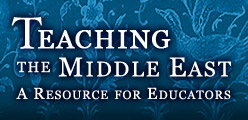Language and Identity
Historians and the general public alike have tended to explain history in terms of language groups, as if all speakers of a single language always identified themselves as a single ethnic group.
This model fits some languages reasonably well. Because ancient Egyptians promoted the idea that they were a single nation with borders, with foreign enemies outside those borders, speakers of ancient Egyptian identified themselves as a single group. Similarly, speakers of Hebrew came to form a single Israelite and later Jewish identity, although there were periods in their early history in which they primarily identified themselves by membership in smaller tribes and kingdoms.
The situation is more complex in many cases, however. Several languages were spoken in early Mesopotamia, including Sumerian and Akkadian. Does that mean that there were Sumerian and Akkadian ethnic groups? Some scholars think so, but others think that early Mesopotamians were multi-lingual and that the basis for their identity was their city or the region in which they lived rather than their language.
The significance of language for understanding identity is also complicated by the fact that the evidence comes largely from written texts. Since few people learned to read and write in ancient societies, the written texts primarily reflect the perspective of the urban ruling elite. Even though the evidence of art and other forms of material culture can often provide insights into ancient identities, we have to acknowledge that our own view is influenced by the perspective of the texts.
Supporting Links:
Sanders, Seth L. (Ed.). “Margins of Writing, Origins of Culture.” (Especially articles by Michalowski and Beaulieu) Oriental Institute Seminars, Vol. 2. Link to resource![]() (accessed May 7. 2010).
(accessed May 7. 2010).
Schwartz, Seth. “Language, Power and Identity in Ancient Palestine.” Past & Present. Link to resource![]() (accessed May 7. 2010).
(accessed May 7. 2010).

 Geoff Emberling
Geoff Emberling
Former Chief Curator, Oriental Institute Museum of the University of Chicago
Guiding Questions
1. How can using language groups to explain history be misleading?
2. What are the sources for understanding identity via language, and why are they problematic?


 Print Page
Print Page
